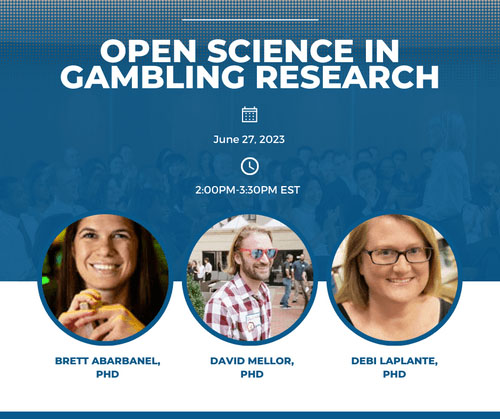
Every year the ICRG offers webinars on the latest research on gambling disorder and responsible gambling. Treatment providers can earn continuing education hours approved by various agencies. Best of all, the webinars are free—thanks to the generosity of the American Gaming Association and Global Gaming Expo!
Next Webinar:
June 27, 2023
2-3:30 p.m. Eastern
Open Science in Gambling Research.
Open Science (OS) is the movement to make scientific research, data and their
dissemination available to any member of an inquiring society, from professionals to citizens. OS is especially important in cases of gambling industry-funded research on gambling disorder and responsible gambling to ensure that the research process is ethical, transparent, and unbiased.
The panel will first discuss OS strategies and then explore how OS principles and practices can be integrated with existing guidelines for industry-funded research on gambling disorder and responsible gambling.
Panel:
- Debi LaPlante, PhD, Harvard Medical School and Cambridge Health Alliance
- Brett Abarbanel, PhD University of Nevada, Las Vegas
- David Mellor, PhD, Center for Open Science
Learning Objectives:
As a result of this program, learners will be able to:
- Apply the principles of OS to research on gambling
- Critically analyze any bias in industry-funded research



